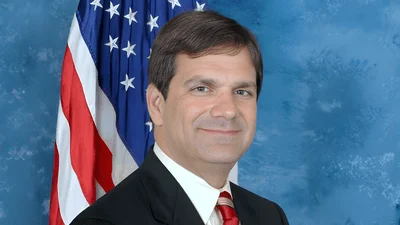Washington, D.C. -This week, the Subcommittee on Government Operations held a field hearing examining the effects the longest ever government shutdown had on federal contract employees.
TAKEAWAYS
* Potentially, 1.5 million contract employees were affected by the 35-day government shutdown in 2019. The Subcommittee determined that the shutdown delayed or reduced the volume of new or renewed contracts at affected agencies by 75%, when compared to the previous year.
* David Berteau of the Professional Services Council and Roger Krone of Leidos testified that contract employees, who often work in the same office as federal employees, potentially face additional consequences when their government employer shuts down. Varied agency policies, contract provisions, contractor capacities, and state laws create cumbersome and inequitable access to assistance for contractors during the shutdown.
* Local small business owners and low-wage contract employees testified that the recent shutdown forced small businesses to lay-off staff, pushed them to choose between life-saving prescriptions and mortgage payments, and made government a less attractive employer and landlord for current and future innovative businesses.
* David Berteau testified that contract employees may lose their security clearances and their eligibility for their jobs, as a result of the financial instability in their personal lives caused by a government shutdown.
* Michael Niggel of Advanced Concepts and Technologies International testified that contractors may receive bad performance grades as a result of a government shutdown, negatively affecting their long-term ability to compete for government contracts. In some cases, federal contractors get poor performance ratings because they miss deadlines or incur increased costs directly attributable to the shutdown.
* Congress could take steps to ensure that contractors have shutdown-related provisions written into their contracts, as well as equal access to unemployment insurance, paid time off, or other assistance.
* Members of the Committee have proposed fair and practical ways to provide backpay to certain contractors, including H.R. 339 and H.R. 678.
WITNESSES
Roger A. Krone
CEO
Leidos
Jaime Contreras
Vice President
SEIU 32BJ
Alba Alemán
CEO
Citizant
Wesley Ford
President
TKI Coffee
Ed Grabowski
President, Local 2061
International Association of Machinists and Aerospace Workers
David Berteau
President & CEO
Professional Services Council
Michael Niggel
CEO
Advanced Concepts & Technologies
Mark Hall
Executive Vice President
ServiceSource
Anthony Crescenzo
Chief Executive Officer
IntelliDyne, LLC
Tamela Worthen
Security Guard
Smithsonian Institution







